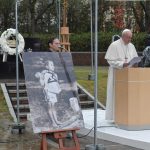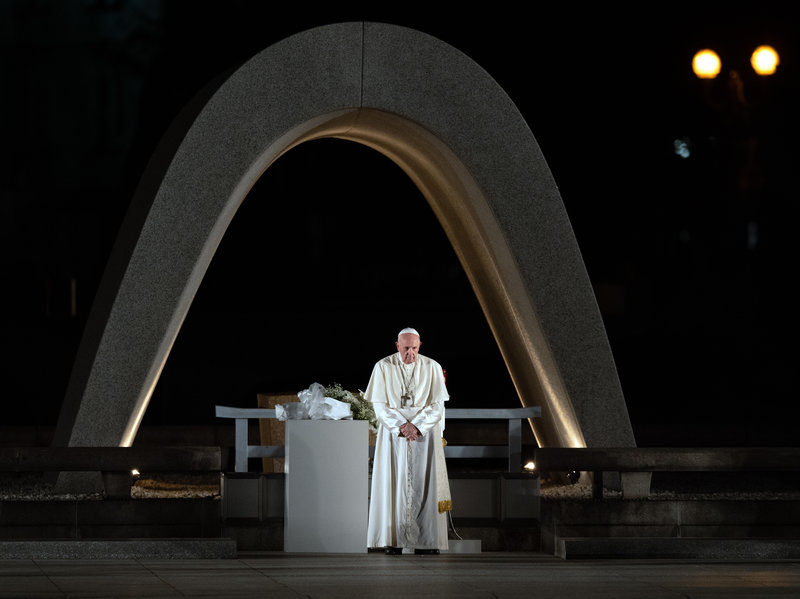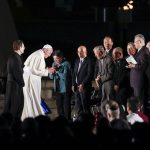Bradly Rozairo OMI – The late Pope St. John Paul II announced the “Appeal for Peace” in February 1981 at the Peace Memorial Park of Hiroshima with these words, “War is the work of man. War is destruction of human life. War is death…To remember the past is to commit oneself to the future…Let us promise our fellow human beings that we will work untiringly for disarmament and the banishing of all nuclear weapons.” His appeal was an invitation to everyone in the world to abolish nuclear weapons, denounce nuclear wars, and commit oneself to peace. In Response to this appeal, the following year the Catholic Church in Japan instituted an annual “Ten Days for Peace” (August 6 –15), a special period to think about our responsibilities toward peace, to learn about peace and to work for peace and human rights.

Last year Pope Francis came Japan. During his visit to Nagasaki and Hiroshima, he made an impassioned appeal for the total elimination of nuclear arms. He said, “in a world where millions of children and families live in inhuman conditions, the money that is squandered and the fortunes made through the manufacture, upgrading, maintenance and sale of evermore destructive weapons are an affront crying out to heaven.”
From the atomic bomb hypocentre park in Nagasaki Pope said, “convinced as I am that a world without nuclear weapons is possible and necessary, I ask political leaders not to forget that these weapons cannot protect us from current threats to national and international security.” He called for “creating a global fund from a part of the defence budget to help the poor”.
Our Holy Father earnestly asked the world leaders to recommit themselves to arms control efforts and the abolition of nuclear weapons. He also invited people to join him in praying each day for the “conversion of hearts and for the triumph of a culture of life, reconciliation and fraternity”.


Pope in Nagasaki
At a meeting for Peace with some religious leaders and survivors of the atomic bombing in Hiroshima, Pope Francis, having presented himself as “a pilgrim of peace” said, “I have come to this place of memory and of hope for the future, bringing with me the cry of the poor who are always the most helpless victims of hatred and conflict.” He denounced the use of atomic energy for purposes of war as “a crime” against humanity and “immoral”.
In addition, he said, “future generations will rise to condemn our failure if we spoke of peace but did not act to bring it about among the peoples of the earth. How can we speak of peace even as we build terrifying new weapons of war? How can we speak about peace even as we justify illegitimate actions by speeches filled with discrimination and hate?”. Pope also prayed with the people saying that “the abyss of pain endured here may remind us of boundaries that must never be crossed”.


Pope in Hiroshima
This August will mark the 75th anniversary of the atomic bombings of Hiroshima and Nagasaki. In this 75th year after the bombing, these two cities have established the Nuclear-Free World Foundation, a body to support people and groups around the globe striving for the abolition of nuclear weapons. The foundation was created by Bishop Mitsuru Shirahama, the Bishop of Hiroshima in response to Pope Francis’ speeches on abolishing nuclear arms during his November 2019 visit to Hiroshima and Nagasaki. Let us hope and pray that this year will be a turning point for opening a path for a world without nuclear weapons.


